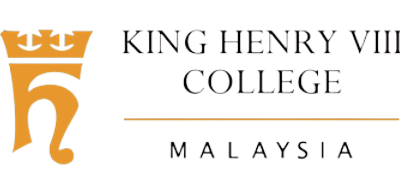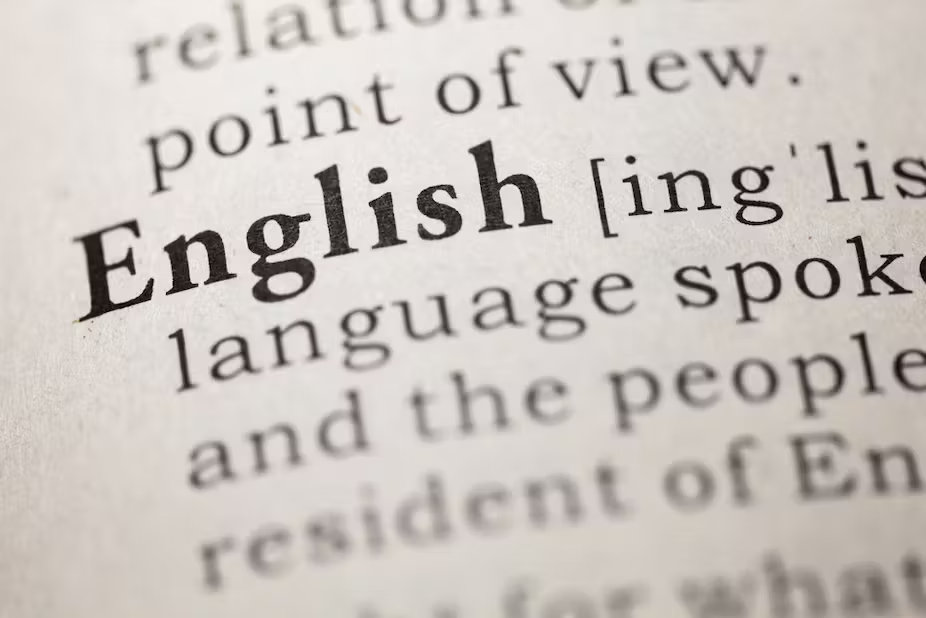A Level Courses
A Level Courses
Our Sixth Form College is dedicated to providing a comprehensive range of courses from both CIE and Edexcel exam boards, catering to a diverse array of academic interests and career aspirations.
Subjects on offer
Art
A level Art is a course for creative and skillful pupils that want to develop their talents and ability and may well be thinking about a career in the creative industries. These careers are many and varied and cover a huge range of disciplines and opportunities from design, marketing, manufacturing to theatre productions and medical illustrations.
However, A level Art is also a great accompaniment to academic subjects as the approach to teaching and learning is very different. Indeed, a former pupil who applied for one of the Oxford University College's had a whole interview on her Art despite her applying for a degree in Law; the interviewers were keen to see that she had wide cultural appreciation and world view.
Biology
Biologists study the natural world, understanding how all living things, Viruses, Bacteria, Animals and Plants – function and how they are interconnected with the world we live in. The problem solving, research and analytical skills you will develop on this course are skills that will help you with further study at university and in the world of work.
Cambridge AS and A Level Biology provides a broad range of topics that fully prepares students for University that is rarely offered with other exam boards. This allows students to explore the subject in depth providing not only subject knowledge, but also a strong understanding of some of the key concepts that are critical to mastering the subject.
If you are interested in following a career for example in Biochemistry, Biotechnology, Dentistry, Environmental science, Genetics, Microbiology, Medicine or Zoology, then studying A Level Biology is the vital first step.
Chemistry
Chemistry is an essential subject for degree courses in Chemistry, Chemical Engineering and Pharmacy. It is also a requirement for Medicine and Dentistry, and for other courses in the life sciences. A Level Chemistry is a good supporting subject for other areas in the physical sciences and engineering and can contribute to the understanding of both A Level Physics and Biology.
With its blend of theoretical, numerical and practical skills, its encouragement of logical thinking, academic rigour and the precise use of terminology, A Level Chemistry is excellent training for many fields. Former students have gone on to a variety of successful careers in industry and commerce, law, accountancy and the academic world.
This A Level Chemistry course has been designed to progress smoothly from the material covered at IGCSE, and aims to make Chemistry interesting and enjoyable.
You will be taught in modern, well-equipped laboratories and supported by two specialist teachers, who will guide you in developing your skills and understanding through a variety of individual, individual, group, and practical work, as well as teacher demonstrations.
Computer Science
Cambridge International AS & A Level Computer Science encourages students to think creatively, through applying practical programming solutions, demonstrating that they are effective users of technology. Students develop computational thinking & programming skills to solve computer science problems. Cambridge International AS and A Level Computer Science will help students develop a range of skills such as thinking analytically, logically and critically. They will also be able to appreciate the ethical issues that arise with current and emerging computing technologies.
Drama
In the Drama A-Level course students will themselves get to experience some of these developments that have shaped theatre and make it such a richly diverse art form.
The course encourages students to be magpies, borrowing from a range of practitioners and cultural styles studied in the course and live theatre that they have seen. This understanding then informs their own live performances and hypothetical performances of their own. They themselves become reflective theatre practitioners, looking at theatre from all angles: actor, designer, writer, technician, choreographer.
Economics
Economics explores the often hidden reasoning behind how people, businesses and governments make decisions. Students of economics can expect to gain an enhanced appreciation and understanding about how the world around them works, which in turn provides them with the skillset necessary to make a difference.
English Language
Learners will explore how English has continually adapted to reflect changes in the social, cultural, political and technological contexts in which it has been used. Learners will explore the causes and consequences of language change in English, developing their knowledge of the topic through research, analysis, and an understanding of conventional methods of presenting historical language data.
Learners are encouraged to move beyond the practical application of the English language, and to engage in a deeper consideration of a number of theoretical issues related to its use. Learners will develop their ability to engage in discussions regarding how the diverse forms of English that exist across the world interact both with one another and with other languages, and how language use contributes to the construction and development of the self.
English Literature
Why study English Literature?
The syllabus enables learners to read, interpret and evaluate texts through the study of literature in English. Learners develop an understanding of literal meaning, relevant contexts and of the deeper themes or attitudes that may be expressed. Through their studies, they learn to recognise and appreciate the ways in which writers use English to achieve a range of effects, and will be able to present an informed, personal response to the material they have studied.
Spanish and French
Why choose Spanish and French for A-Level?
There are many reasons to choose Spanish at A-Level.
Firstly, the language has 577 million native and second-language speakers, making it the world’s second most widely spoken language. This means there is a wealth of resources available for learning Spanish, from books and websites to native Spanish speakers you can converse with.
Furthermore, given that examining boards like Cambridge A-Level offer exams that test thoroughly on grammar and speaking skills, Spanish is an excellent choice for anyone hoping to acquire a greater mastery of the language.
French is an incredibly useful and popular language. It is the second most spoken native language in the world, and French is an official language of 29 countries!
Therefore, French is a necessary language to learn in order to communicate with the people, cultures, governments, and companies that span the French-speaking world.
By studying French, you will increase your career options and earning potential, as well as make you more competitive in the global economy and labor market.
Further Mathematics
Why study Further Mathmatics?
TCambridge International A Level Mathematics develops a set of transferable skills. These include the skill of working with mathematical information, as well as the ability to think logically and independently, consider accuracy, model situations mathematically, analyse results and reflect on findings.
Learners can apply these skills across a wide range of subjects and these skills equip them well for progression to higher education or directly into employment.
Geography
Geography has never been more relevant than it is today. Almost every news article has a link with topics that we study, from the way that viruses spread to the policies of presidents. From the spread of wildfires to water shortages. Our world is constantly changing and Geography aims to give you the reasons for these changes and the understanding to act against the environmental issues we face.
Our Geography course covers a range of physical and human Geography topics that supports every interest and links well to modern economic and environmental issues.
History
The CIE IGCSE History syllabus takes a fascinating look at some of the most important developments in 20th century History from the 1919 Paris Peace Conference through to the collapse of the Soviet Union.
Students will develop skills of analysis and evaluation as they apply these to source material from the time periods studied. Following the IGCSE in History instills students with an appreciation of the past and the causes and consequences of the major developments in recent international history.
Why choose History?
- Students in History will develop their ability to write well-supported arguments, evaluate competing claims and ideas, create and defend sustained judgements, and effectively analyse source materials. These are skills which are beneficial to a wide range of careers in later life (such as research, law, politics, economics). Furthermore, studying History also enriches students use of the English language and their ability to read widely and write convincingly.
- History gives students a well-rounded view of the world where they are able to draw upon an understanding of the past to better appreciate the developments of the modern world today. It helps to explain ongoing world tensions and enables students draw parallels between events and see similarities and differences across time, place and culture.
Mathematics
Why study Mathmatics?
Cambridge International A Level Further Mathematics develops and extends a set of transferable skills. These include the skill of working with mathematical information, as well as the ability to think logically and independently, consider accuracy, model situations mathematically, analyse results and reflect on findings.
Learners can apply these skills across a wide range of subjects and these skills equip them well for progression to higher education or directly into employment.
Photography
A level Graphic Communication is a two year course (please note: AS Art is no longer available as of Summer 2020). The course allows for pupils to experiment and progress in a wide range of different media, ideas and approaches. The aim is to develop confidence in pupils to create ambitious and challenging work that show self-belief, personal expression and skill. Graphic Communication is an excellent starting point for career opportunities in the creative Industries. There is a strong emphasis on artist studies and pupils may wish to conduct an IPQ in this area to support their work and understanding of what is a truly global subject.
As an alternative to Graphic Communication, pupils can opt to complete A level Photography. It follows the same specification to Graphic Communication and whilst it incorporates some of the same editing techniques the focus is on using images as a visual language as opposed to the more commercial application of design. Your Art teacher can help advise you which will be the more suitable course.
Mandarin
Why study Mandarin?
- Chinese is the most widely spoken language in the world
- Being able to speak Chinese opens up an infinite array of economic and career opportunities
- The Chinese language is a gateway into an amazingly rich and vibrant culture
- Proficiency in Chinese opens up a wide range of travel opportunities
- Learning a new language enriches one’s self, develops brain function and strengthens our knowledge and understandings of other people
Music
Music is the universal language of mankind.
Music is a subject that challenges both creatively and academically, and stretches far beyond the ability to play an instrument. By studying Music, we learn to listen critically, analysing what we hear, studying composers from the Baroque, Classical, Romantic and 20th Century eras. Cambridge International AS and A Level Music encourages learners to develop their musical skills in a variety of music styles and traditions and build on their musical interests. Students are encouraged to compose and perform with understanding, and develop their analytical and communication skills in this course. They learn to become independent and critical thinkers, using Music as their vehicle.
Cambridge International AS and A Level Music provides a foundation for the study of music or related courses in higher education. It is also an excellent companion A level to students pursuing maths and sciences and is favourably regarded by University selection panels as it demonstrates a broader outlook and a sensitivity to the emotions.
Physics
If you choose to study A-level Physics you will learn something about the fundamental workings of nature – from the smallest sub-atomic particles to the processes at work in the largest stars and galaxies. The opportunities that can come from applying this new way of thinking are great.
Why Study A-Level Physics?
The course will help you develop the knowledge, skills, and mindset that to prepare you for successful university study and employment. You will also develop lifelong skills of scientific enquiry, confidence in technology, and most importantly, the ability to think critically and to problem solve.
A-level Physics provides a suitable foundation for the study of physics or related courses in higher education. It is recognised as one of the best facilitating subjects for university entrance - a good grade in A-level Physics is a strong indicator of your academic ability for a wide range of subjects and helps you keep your options open. It is particularly suitable for candidates considering further study in any of the engineering sectors, finance, or even in areas such as law and medicine.
You will be taught in modern, well equipped laboratories and supported by specialist teachers. Problem solving technique is a key concept on which the course is built, as is experimental skill.
Why study Physical Education
The CIE IGCSE History syllabus takes a fascinating look at some of the most important developments in 20th century History from the 1919 Paris Peace Conference through to the collapse of the Soviet Union.
Students will develop skills of analysis and evaluation as they apply these to source material from the time periods studied. Following the IGCSE in History instills students with an appreciation of the past and the causes and consequences of the major developments in recent international history.
Why study Physical Education?
Cambridge International AS Level Sport & Physical Education helps learners to develop theoretical knowledge of physical education and build their skills, tactical awareness and overall performance in sport and physical activity. The syllabus encourages learners to:
- apply the knowledge they gain to real-world examples
- relate their theoretical learning to physical activities in order to improve and refine how they perform
- understand and explain global trends in sport and physical education.
Program of study

Our Sixth Form College is dedicated to providing a comprehensive range of courses from both CIE and Edexcel exam boards, catering to a diverse array of academic interests and career aspirations.
At KH8 all our students are encouraged to take 3 A Level courses and an IPQ (An international project qualification). As most universities and UCAS applications only ask for 3 A Levels we encourage our students to focus on achieving on the best grades for their chosen A Levels.
This solid academic foundation is complemented by our innovative ASPIRE program, which nurtures the development of well-rounded, confident, and compassionate young adults who are equipped to excel in any chosen field.
CAIE AS and A-Levels allow students great flexibility in terms of subject choice.
FAQs
We do offer 4 A Levels to students who we feel are capable and have a proven track record from IGCSE. It is important to note that Universities such as Oxford and Cambridge do not require but and prefer candidates to have a deeper understanding of 3 A Levels.
The International Project Qualification (IPQ) is an independent project that can be completed in Year 12 or started in Year 12 and completed in Year 13. This provides students with extra UCAS points, equivalent to half an A Level. While many universities require only 3 A-level grades, we have found that the IPQ can give students a competitive edge when applying to certain prestigious universities. This qualification provides evidence that students are capable of independent research and have developed a depth of knowledge in their chosen area of study.
The IPQ is an excellent opportunity for students to showcase their ability to work independently, manage a long-term project, and develop research skills. By engaging in this qualification, students can demonstrate their intellectual curiosity and commitment to academic excellence, qualities that are highly valued by top universities.
Overall, the IPQ can be a valuable addition to a student's academic profile, and we encourage all interested students to consider pursuing this qualification.
To be considered for admission, prospective students must meet the following requirements:
- Minimum Academic Requirement: Applicants must have a strong academic foundation, demonstrated by achieving a minimum of five GCSEs/SPM or equivalent at grades A*-C, which must include English and Mathematics.
- Comprehensive School Report: Applicants are required to submit their most recent school report, including current or predicted grades, offering valuable insights into their academic progress and potential.
- Character Reference: A character reference from the applicant's current or previous school/college is essential, providing valuable information about their personal qualities, work ethic, and overall character.
- Admissions Test: To ensure a thorough evaluation of each applicant's abilities, motivation, and potential for success within our college, candidates will be required to participate in an admissions test.
- Interview: As part of the application process, candidates will have the opportunity to engage in a one-on-one interview with a member of our senior leadership team, allowing for a deeper understanding of their aspirations and suitability for our institution.
In Sixth Form, every student will be assigned a personal tutor. This tutor will provide one-to-one guidance through several vital processes, such as writing a personal statement, selecting suitable courses and universities, and supplying a UCAS reference. Furthermore, the tutor will facilitate interview opportunities and conduct practice sessions.
Additionally, as a school, we collaborate with partners such as MABECS. They provide an extra layer of support by organising career talks, personal statement workshops, and extra interview practice, particularly for applications to Oxford and Cambridge. MABECS also offers assistance for students pursuing specific courses, such as Medicine and Accountancy, which require additional examinations like the UCAT and BMAT. Crucially, they also assist with scholarship applications and interview preparation for all courses, ensuring all of our Sixth Form students are provided the very best support for a successful application to theor chosen course.
Both the International Baccalaureate (IB) and A-Levels are widely recognised, rigorous pre-university courses, each with its own unique attributes. The IB offers a broader curriculum, encouraging students to study a wide range of subjects.
We believe A-Levels are a much better option for our students as it allows them to specialise more deeply in their chosen subjects, typically three or four. This focused approach can be advantageous for students who have a clear idea of what they want to study at university or the career they wish to pursue, as it allows for intensive study in these chosen areas. A-Levels may also provide greater flexibility with regard to university admissions, as they are a well-established and universally understood qualification, particularly within the UK university system.


















